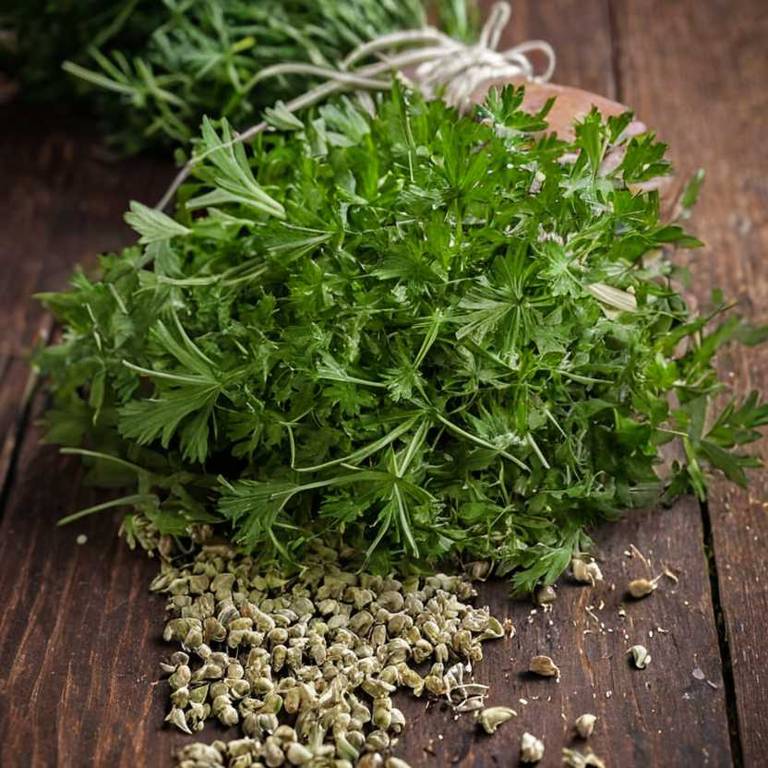10 Best Daucus Carota Health Benefits

Daucus carota, commonly known as the carrot, is a nutrient-rich vegetable that offers numerous health benefits.
It is an excellent source of beta-carotene, which the body converts into vitamin A, supporting eye health and immune function. Carrots are also high in dietary fiber, promoting digestive health and helping to regulate blood sugar levels. Additionally, they contain antioxidants that may reduce the risk of chronic diseases such as heart disease and cancer.
Incorporating Daucus carota into a balanced diet can contribute to overall wellness and longevity.
1. Supports digestion
Daucus carota supports digestion by promoting the healthy function of the gastrointestinal tract.
It contains dietary fiber, which aids in regular bowel movements and prevents constipation. The root vegetable also contains enzymes that help break down food more efficiently, improving nutrient absorption. Additionally, Daucus carota is rich in antioxidants that can reduce inflammation in the digestive system.
These properties make it a beneficial food for maintaining overall digestive health.
2. Boosts immunity
Daucus carota boosts immunity by providing a rich source of essential nutrients such as vitamin C, vitamin A, and various antioxidants.
These compounds help strengthen the immune system by supporting the production and function of white blood cells, which are critical for fighting off infections. Additionally, the presence of bioactive compounds like falcarinol and falcarindiol may contribute to its immune-enhancing properties. Regular consumption of Daucus carota can help the body defend against common illnesses and promote overall health.
Its natural properties make it a valuable addition to a balanced diet for maintaining a robust immune response.
3. Promotes eye health
Daucus carota promotes eye health due to its rich content of beta-carotene, which the body converts into vitamin A. Vitamin A is essential for maintaining the health of the cornea and retina, and it helps prevent vision problems such as night blindness.
Additionally, the antioxidant properties of Daucus carota can help reduce oxidative stress in the eyes, which is linked to age-related macular degeneration. Regular consumption of this vegetable may support overall eye function and reduce the risk of certain eye diseases.
Including Daucus carota in a balanced diet can be a natural way to enhance eye health and protect against vision deterioration.
4. Reduces inflammation
Daucus carota reduces inflammation by containing bioactive compounds such as polyacetylenes and flavonoids, which have potent anti-inflammatory properties.
These compounds help inhibit the production of pro-inflammatory cytokines and enzymes like COX-2, thereby mitigating inflammatory responses in the body. The anti-inflammatory effects of Daucus carota have been supported by various scientific studies, particularly in relation to conditions such as arthritis and digestive disorders. Incorporating Daucus carota into the diet may offer natural support for managing chronic inflammation.
This makes it a valuable addition to a health-conscious lifestyle aimed at reducing inflammation and promoting overall well-being.
5. Aids weight loss
Daucus carota aids weight loss by being low in calories and high in dietary fiber, which promotes a feeling of fullness and reduces overall calorie intake.
It is also rich in nutrients like potassium and antioxidants that support metabolic health and reduce inflammation. The high water content in carrots helps with hydration, which is essential for maintaining a healthy metabolism. Additionally, the presence of vitamin C and other phytochemicals may enhance fat oxidation and improve insulin sensitivity.
Incorporating Daucus carota into a balanced diet can be a beneficial strategy for those looking to manage their weight effectively.
6. Improves skin health
Daucus carota improves skin health by providing essential nutrients such as vitamins A, C, and E, which are known for their antioxidant properties.
These nutrients help protect the skin from oxidative stress and damage caused by free radicals. The high levels of beta-carotene in carrots also contribute to the maintenance of skin cell integrity and promote a healthy complexion. Additionally, the anti-inflammatory properties of Daucus carota can help reduce skin irritation and redness.
Regular consumption of Daucus carota supports overall skin vitality and may contribute to a more youthful appearance.
7. Enhances heart health
Daucus carota enhances heart health by providing essential nutrients that support cardiovascular function.
It is rich in potassium, which helps regulate blood pressure and maintain healthy heart rhythms. The presence of antioxidants in Daucus carota reduces oxidative stress, lowering the risk of heart disease. Additionally, its fiber content can help lower cholesterol levels, further promoting heart wellness.
Regular consumption of Daucus carota may contribute to overall cardiovascular health and reduce the risk of heart-related complications.
8. Supports bone strength
Daucus carota supports bone strength by providing essential nutrients that are crucial for maintaining healthy bones.
It is rich in calcium, which is a primary component of bone structure and helps in the formation and maintenance of strong bones. Additionally, it contains vitamin K, which plays a key role in bone mineralization and enhances the body's ability to absorb calcium. The presence of magnesium and phosphorus in Daucus carota further contributes to bone density and overall skeletal health.
Regular consumption of Daucus carota can help prevent bone-related disorders and promote long-term bone strength.
9. Improves brain function
Daucus carota improves brain function by providing essential nutrients that support cognitive health.
It is rich in antioxidants, which help protect brain cells from oxidative stress and damage. The presence of compounds like falcarinol and falcarindiol may enhance neural communication and memory retention. Additionally, its high vitamin A content supports the maintenance of healthy brain tissue.
Regular consumption of Daucus carota may contribute to better focus, concentration, and overall mental performance.
10. Helps detoxify body
Daucus carota helps detoxify body by supporting the liver's natural processes in eliminating toxins.
It contains antioxidants and phytonutrients that aid in neutralizing harmful substances within the body. The root vegetable is rich in compounds like falcarinol, which have been shown to promote the body's detoxification pathways. Regular consumption of Daucus carota can enhance the body's ability to flush out toxins more efficiently.
This makes it a valuable addition to a diet focused on overall health and wellness.